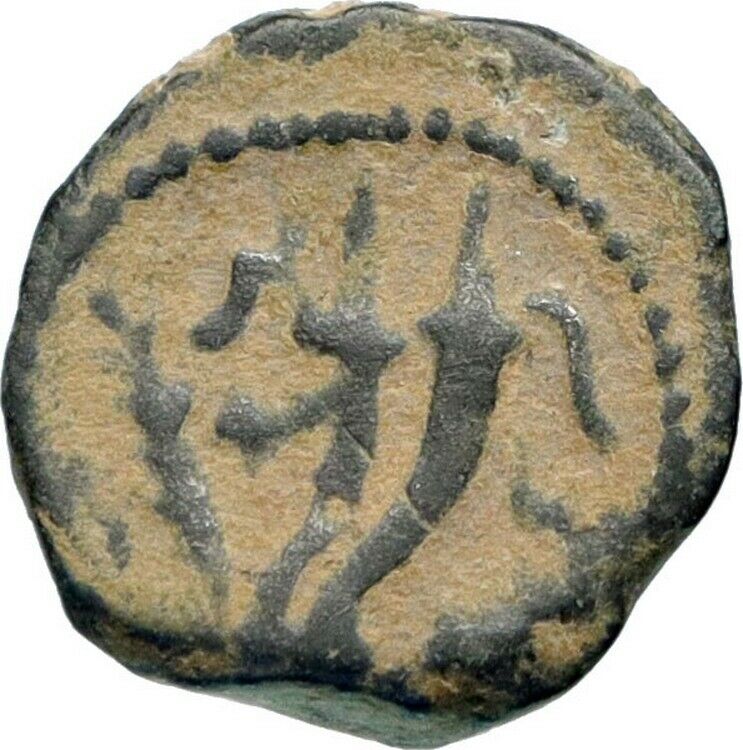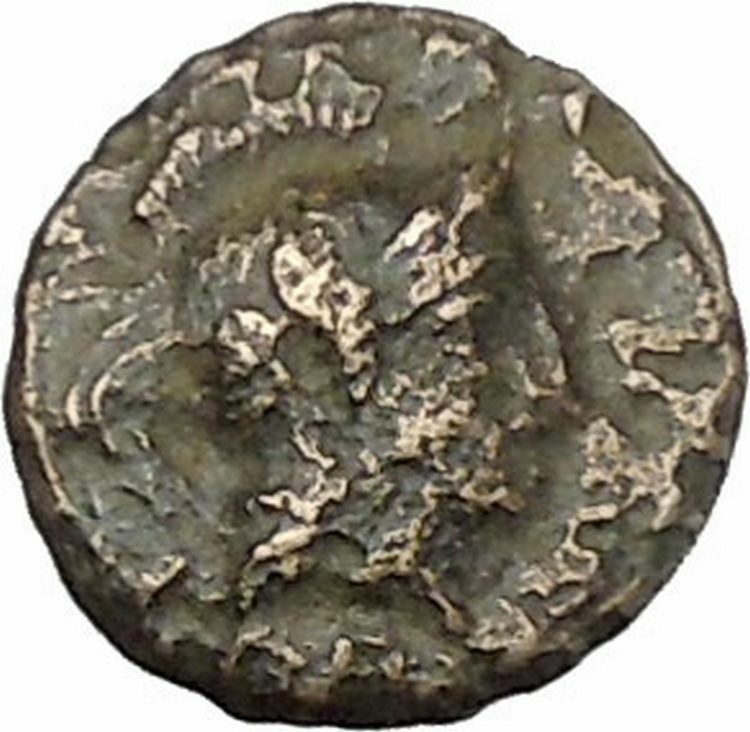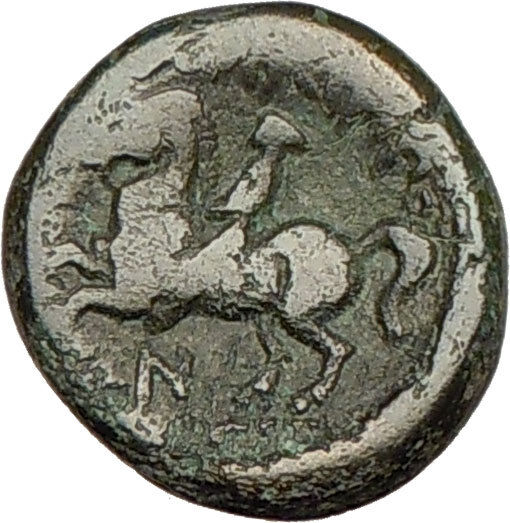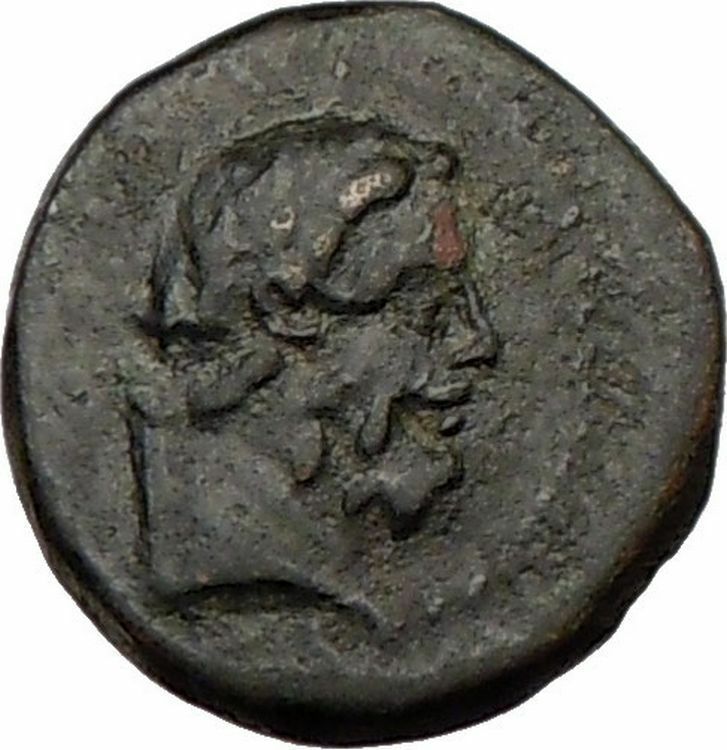|
Greek Coin of Bithynian Kingdom
Prusias I Cholos – King circa 228-182 B.C.
Bronze 15mm (4.19 grams) Struck circa 228-182 B.C.
Reference: HGC 7, 619; Rec Gen 17; SNG Copenhagen 628-9; SNG von Aulock 250
Laureate head of Apollo to right.
ΒΑΣΙΛΕΩΣ ΠΡΟΥΣΙΑΣ, bow and quiver.
Under Ziaelas’ son, Prusias, the Bithyunian Kingdom reached its zenith. He was an enlightened and courageous ruler who managed to maintain the prosperity of his realm at the time of great political turmoil in Asia Minor. The celebrated Carthaginian leader, Hannibal, was given refuge at Prusias’ court when being pursued by the victorious Romans.
The Kingdom of Bithynia was founded in the early years of the 3rd century B.C. by Zipoetes, a chieftain of the Bithyni. This tribe had, in early times, migrated from Thrace to north-western Asia Minor where they eventually came under Persian suzerainty. Zipoetes, who issued no coinage was succeeded by his son Nikomedes who extended his kingdom with the help of the Gauls. The famous city of Nicomedia was founded by this king about 265 B.C.
You are bidding on the exact item pictured, provided with a Certificate
Prusias I Cholus (lived c. 243 – 182 BC, reigned c. 228 – 182 BC) was a king of Bithynia, the son of Ziaelas of Bithynia.
Prusias was a vigorous and energetic leader; he fought a war against Byzantium (220 BC), seizing its Asiatic territory, a part of Mysia that had been in its possession for a long time. Then, he defeated the Galatians who Nicomedes I had invited across the Bosphorus to a territory called Arisba, putting to death all of their women and children and letting his men plunder their baggage.
At some point during his reign, he formed a marriage alliance with Demetrius II of Macedon, receiving the latter’s daughter, Apama III, as his wife.
He expanded the territories of Bithynia in a series of wars against Attalus I of Pergamum and Heraclea Pontica on the Black Sea, taking various cities formerly owned by the Heracleans, renaming one them, Prusias, after himself. While besieging the city of Heraclea Pontica, he dealt many casualties to the besieged, but while climbing a ladder, he was hit with a stone and he broke his leg; the siege was lifted due to his injury. This is likely where he was given the surname “the lame”. Philip V of Macedon granted him the ports of Keios and Myrleia in 202 BC, which he renamed Prusias and Apameia respectively. Although he granted sanctuary to Hannibal, who successfully employed an odd stratagem against the Attalids for him at sea, he remained neutral during the Roman Republic’s war with Antiochus III the Great, refusing an alliance with Antiochus. He agreed on peace terms with presumably Eumenes II in 183 BC, in the city of Cyzicus. Apama III bore Prusias I a son called Prusias II, who succeeded him..
The town of Prusa (now Bursa in Turkey), which he rebuilt, is named after Prusias.
|










